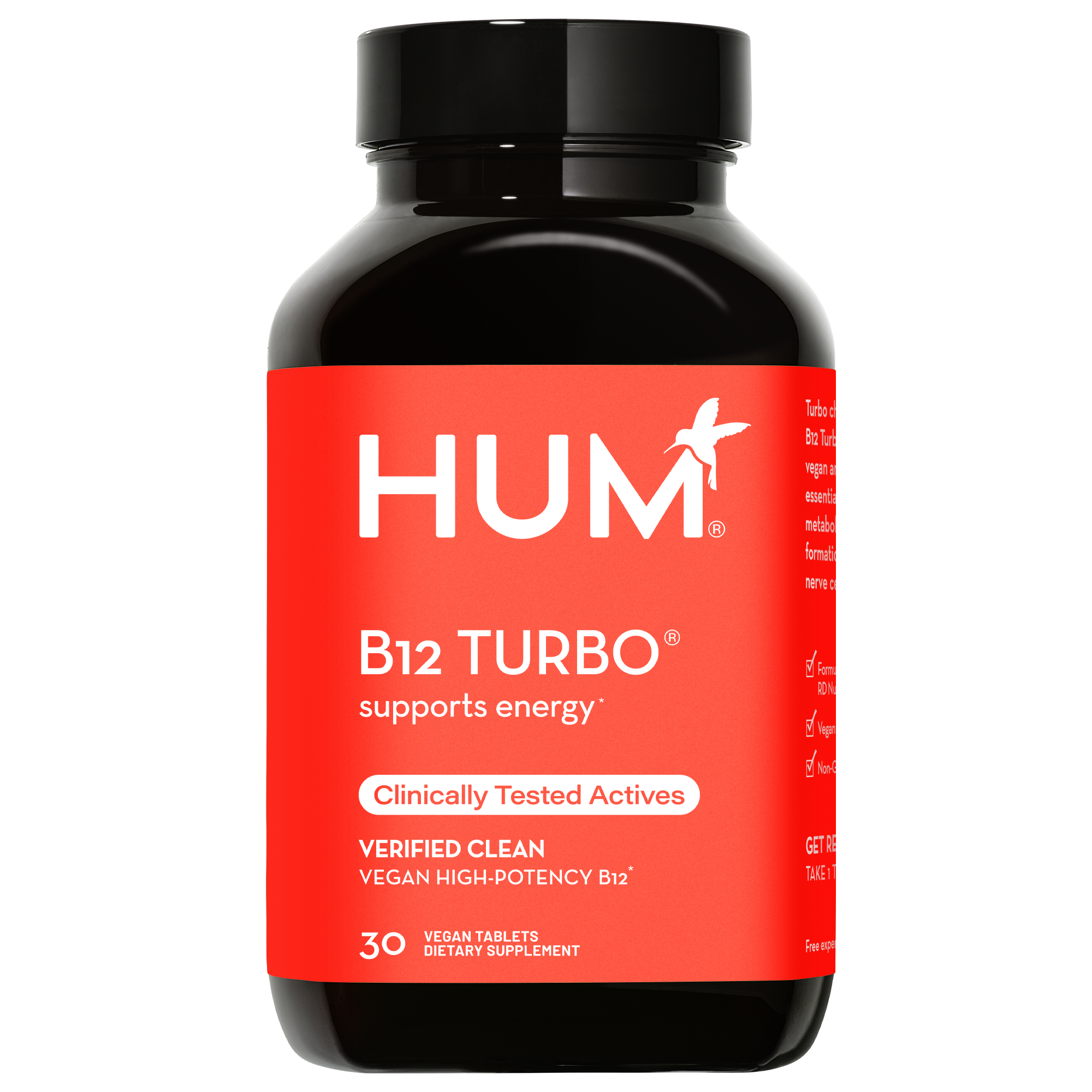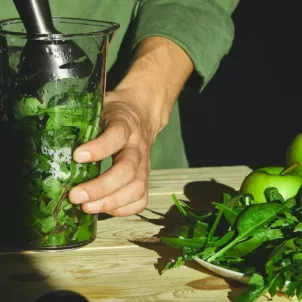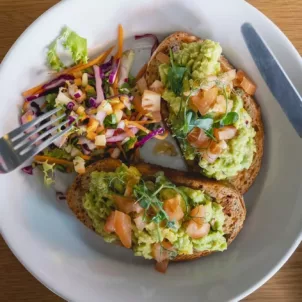A Beginner’s Guide to Plant-Based Eating
Plant-based doesn’t mean you’re limited to salads and fruit bowls. If you’re hoping to make a switch in your eating habits, we put together a guide to plant-based diets for beginners (including dietitian-approved recipe ideas).
Food trends are constantly changing, but one in particular has stood the test of time: plant-based eating. Some research finds that Jain monks may have been practicing vegan diets in ancient India. This is one style of eating that many experts can get behind. As scientists continue to discover more about the benefits of whole, unprocessed foods, it’s become increasingly popular. There are even more options than ever to try eating plant-based, with delivery services and restaurants incorporating dairy-free and meat-free meals into their menus. If you want to get in on the trend but don’t know where to start, we put together a guide to plant-based diets for beginners.
If you’re thinking about making the switch to plant-based eating, you’re not alone. Cow’s milk sales have declined while plant-based alternatives are on the rise. Additionally, research shows that one in four people in the U.S. have cut back on eating meat. There’s never been a better time to make the switch—but it can be intimidating for some. Below, we break down exactly what a plant-based diet is, how it benefits your health (and the planet’s health), and give expert-approved meal prep ideas.
What Is Plant-Based Eating?
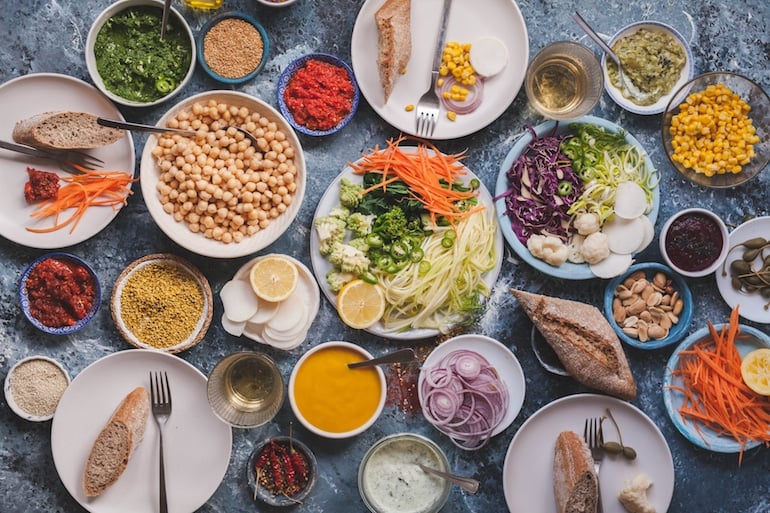
Before trying out a plant-based diet, it’s important to understand exactly what you’re signing up for. “Plant-based eating describes a diet that is mostly (or exclusively) made-up of minimally processed plant-based foods,” explains Gaby Vaca-Flores, RDN, CLE, HUM’s education specialist. The key word here is “mostly,” as going plant-based doesn’t mean you have to go vegetarian or vegan. However, you certainly can if you’d like.
What Are The Health Benefits Of A Plant-Based Diet?
Plant-based diets are so buzzy because they offer a multitude of health benefits. That’s because they’re typically high in vitamins, minerals, and fiber while also low in cholesterol and saturated fats. It all adds up: A plan-based diet supports your overall health. The benefits include:
- Supported heart health
- Balanced blood sugar
- Healthy weight management
- Improved cognitive function
- Improved tone and texture of skin (since dairy can be a breakout trigger for some)
It’s important to remember that these health benefits come from a plant-based diet focused on whole, unprocessed foods. As the demand for plant-based alternatives rises, there are more processed foods available than ever. However, just because something’s vegan or dairy-free doesn’t necessarily mean it’s healthier. A recent study found that plant-based eaters who consumed a diet focused on vegetables, legumes, nuts, whole grains, and fruit had a significantly lower risk of heart disease, while plant-based eaters whose diets centered around refined grains and other highly processed foods had an increased risk of heart disease.
How A Plant-Based Diet Can Help The Environment
Another benefit of plant-based diets? They’re more sustainable. “By eliminating the high demand for animal-based products, a plant-based diet may support lower greenhouse gas emissions,” Vaca-Flores explains.
Animal agriculture takes a serious toll on our environment. According to research, it accounts for nearly 15 percent of global greenhouse gas emissions—more than all types of global transportation. Producing meat requires a lot of resources, too. Creating a single hamburger requires 616 gallons of water. For reference, it takes 61 gallons of water to produce half a cup of tofu. Researchers agree that an immediate and substantial reduction in meat and dairy is necessary in order to mitigate climate change. So even if you’re not ready to commit to a fully plant-based diet, just one day a week can have an environmental impact.
Are There Any Downsides to a Plant-Based Diet?
While there are many benefits to a plant-based diet, getting all the proper nutrients can be tricky sometimes, Vaca-Flores says. “While it’s possible to meet your nutritional needs through plant-based foods, it can still be challenging—especially when it comes to nutrients like protein, iron, B12, and calcium, which are more widely available in animal-based foods,” she says. “However, meal planning can help ensure you’re getting enough nutrients.” And if you’re struggling to get everything you need, you can fill any potential gaps with vegan or vegetarian supplements. HUM Nutrition’s vitamin B12 supplement, B12 Turbo, is a good place to start.
Expert Tips For Starting a Plant-Based Diet for Beginners
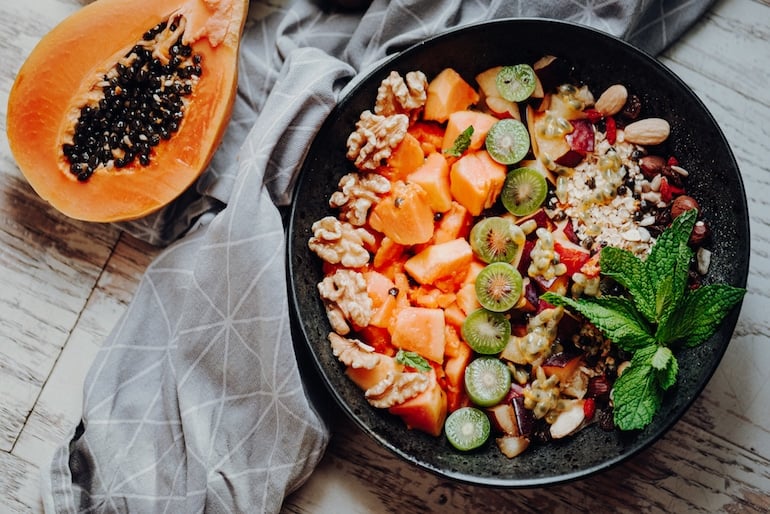
Ready to get going on your plant-based journey? Vaca-Flores offers her best tips for plant-based diets for beginners.
Prioritize foods that will help keep you full.
Going plant-based doesn’t mean you can or should only eat salads. In fact, that likely won’t keep you full, which can make it difficult to stick to a plant-based diet. “Whole grains, legumes, nuts, seeds, and starchy vegetables are good options to have stocked in your kitchen,” Vaca-Flores says. “Plus, these foods are usually less perishable than their leafy greens and fruit counterparts.” Remember that just because you may not be eating meat doesn’t mean you’re not eating protein. Studies recommend aiming for about .3 grams of protein a day per pound of body weight (however, you may need to adjust this based on your physical activity).
Plan your meals and snacks ahead of time.
Another way to stick to a plant-based diet plan for beginners? Take out any unnecessary stress or work by planning meals ahead. “Winging your diet can make it very difficult to stay consistent, especially when dining out,” Vaca-Flores says. “I recommend planning your core meals and doing your grocery shopping on Sundays to help set you up for success the following week.”
Add a vegan vitamin B12 supplement into your routine.
If you’re planning on being strictly plant-based (meaning vegan), make sure you add a vitamin B12 supplement into your diet. “Vitamin B12 is hard to come by in plant-based foods, thereby increasing your risk for a nutritional deficiency and low energy levels,” Vaca-Flores explains. HUM’s B12 Turbo supplement is vegan and offers a bioavailable form of B12 to help with absorption so you don’t have to worry about a vitamin deficiency.
A Day In The Life Of a Plant-Based Diet
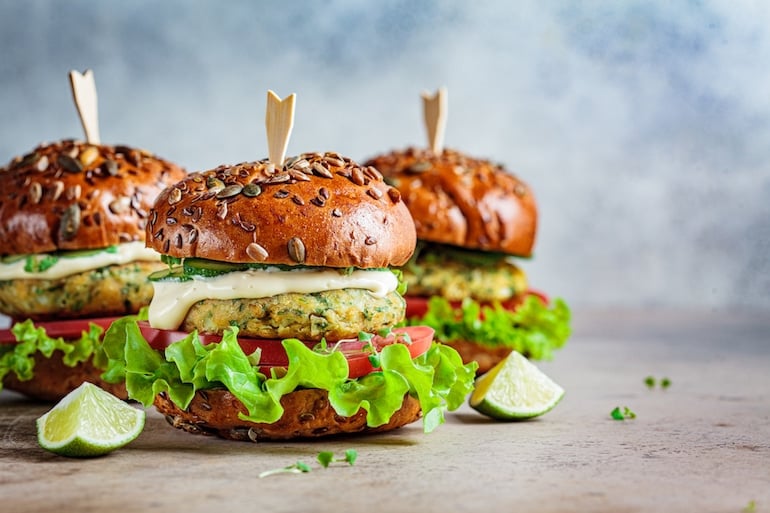
Looking for examples of a plant-based diet for beginners? Vaca-Flores shares her favorite plant-based diet recipes for beginners, below.
Breakfast: Rolled Oats
“Kicking off breakfast with whole grains and a healthy fat source can be a great way to promote satiety and energy at the start of your day,” she says. “An example includes rolled oats topped with walnuts, cinnamon, and sliced apples.” Or, try this baked oatmeal recipe—it tastes just like a snickerdoodle.
Lunch: Fresh Salad
Vaca-Flores recommends keeping your lunches light and simple. “Lunch provides a great opportunity to create a salad with any leafy greens that you have on hand,” she says. “My go-to plant-based salad includes mixed greens, chopped avocado, fresh tomato, and quinoa served with a drizzle of olive oil.” Want to switch up your salad? Prep this healthy Ceasar salad dressing for any last-minute plant-based lunches.
Dinner: Homemade Burrito
“At dinner time, I fall back on meal-prepped foods to easily put together a quick and hearty meal,” Vaca-Flores says. “An example includes a whole wheat tortilla wrap filled with black beans, homemade salsa, sliced bell peppers, and steamed rice.” Make sure you soak your beans properly to avoid bloating after the fact.
Snacks
What about snacking? Staying nourished throughout the day is key for sticking to a plant-based diet meal plan for beginners , but suggests sticking to whole, unprocessed options. “I typically reach for simple snacks, like homemade trail mix and sliced fruit or vegetables.” You can make healthy energy bites or an immunity-boosting smoothie for a mid-day pick-me-up.
